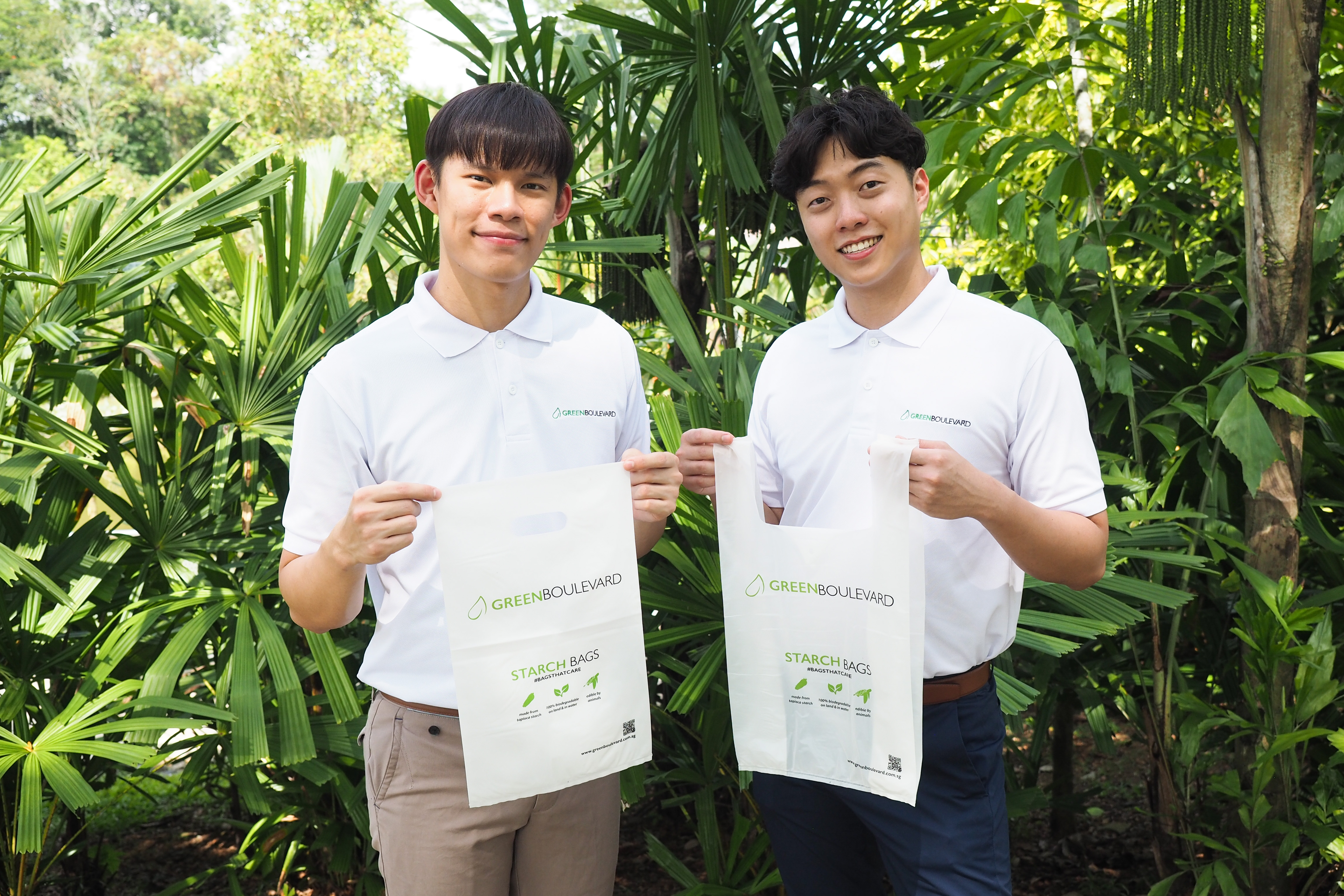
Meet Jacob Koh and Matthew Ong, the co-founders and co-directors of Green Boulevard. These 25 year olds on a mission to eliminate plastic bag wastage, one bag at a time. The former university mates are the co-founders and co-directors of Green Boulevard (www.greenboulevard.com.sg), which designs and manufactures Starch Bags. With the look and feel of plastic bags but made of tapioca flour, these unique carriers are biodegradable in both water and soil, and can even be safely eaten by animals. ESTHER YEUNG speaks to Jacob Koh about sustainability and the changes individuals can make to protect the environment.
What inspired you to start Green Boulevard?
Matthew and I were still undergraduates at the Nanyang Technological University when we started the company. We observed and were troubled by the extensive use of disposables by people and decided to look for eco-friendly alternatives to replace them. Plastic bags are the most commonly used disposable, so we introduced Starch Bags as their replacement.
How did you determine which materials to use in the construction of the Starch Bags?
It was important to us that we employed sustainable materials, such as the tapioca starch and vegetable oil derivatives that went into the making of the bags. Although there is a concern that tapioca is a food source, the starch in our carriers is not food-grade tapioca, but the kind used for industrial purposes. We also wanted to ensure our bags were fully biodegradable. Presently you can find many other types of biodegradable bags on the market that are not fully biodegradable; for instance, there are oxo-biodegradable bags made from plastic with added additives—although these break down at a quick rate, they contribute to the microplastics problem.
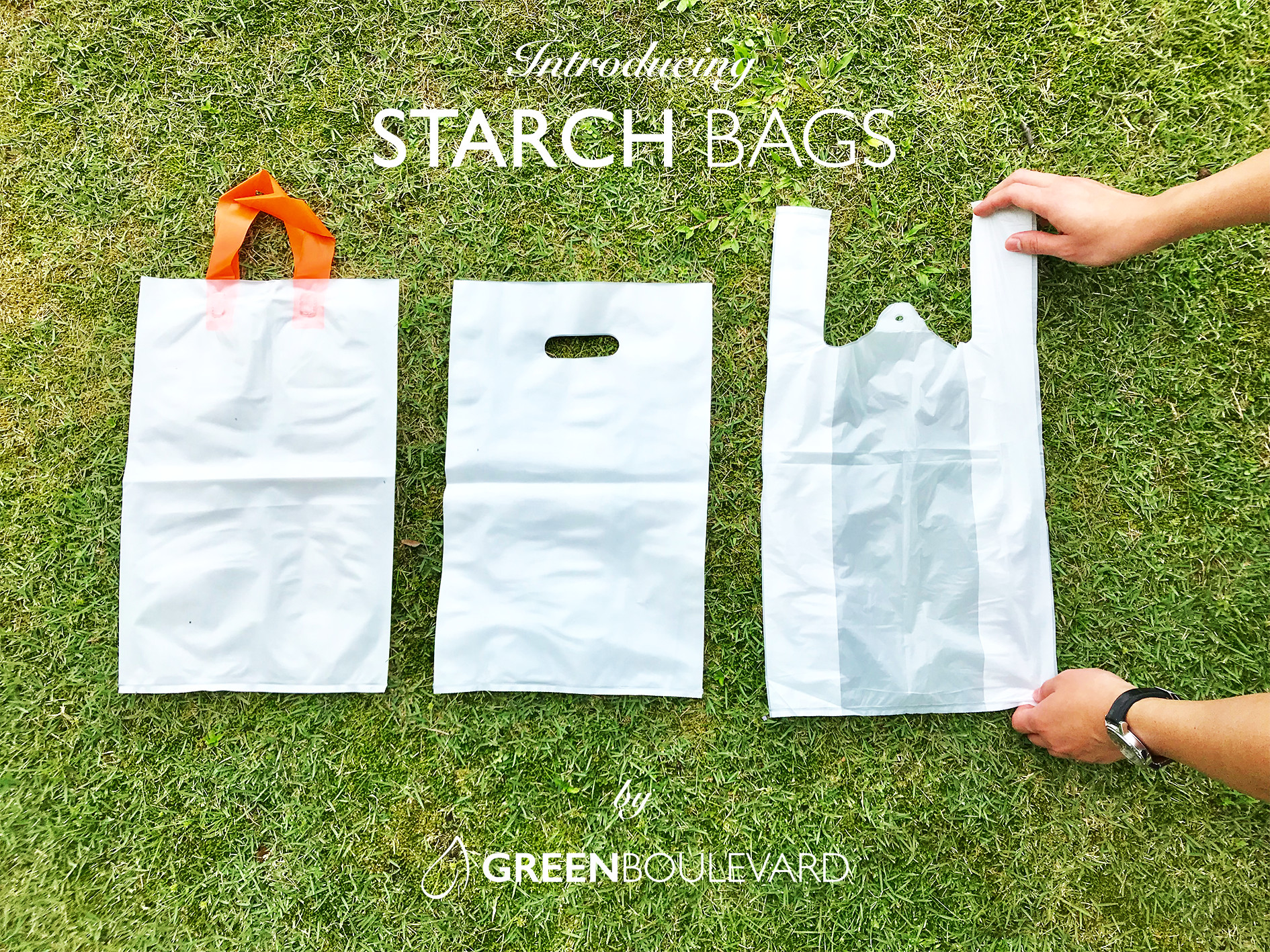 Green Boulevard sells biodegradable bags made out of tapioca starch and vegetable oil derivatives, providing a sustainable alternative to plastic bags
Green Boulevard sells biodegradable bags made out of tapioca starch and vegetable oil derivatives, providing a sustainable alternative to plastic bags
We know you're all about eco-sustainability, but we're also curious about how you sustain your business financially.
At present, our revenue comes mainly from the sales of the Starch Bags. However, due to their cost, there is still a high inertia in terms of market adoption (a Starch Bag is more than twice the price of a plastic bag). We are also looking to diversify our income streams—beyond the bags, we are conducting research and exploring ways to expand our product range using the same materials. We’re also developing a household recycling service to promote recycling. Our long-term vision is for Green Boulevard to be a company that will shape people's behaviours in favour of sustainability.
How have you witnessed the change Green Boulevard has created, and how do you measure your social impact?
Environmental impact is hard to measure and it’s difficult to gauge how much we've helped the environment. One way of measuring our social impact is through the number of bags we’ve sold—we take that to represent how many plastic bags have been replaced—and the number of less-privileged people we employ as staff. Ultimately, if every Singaporean does their part for the environment, our collective social impact will be much more significant and visible.
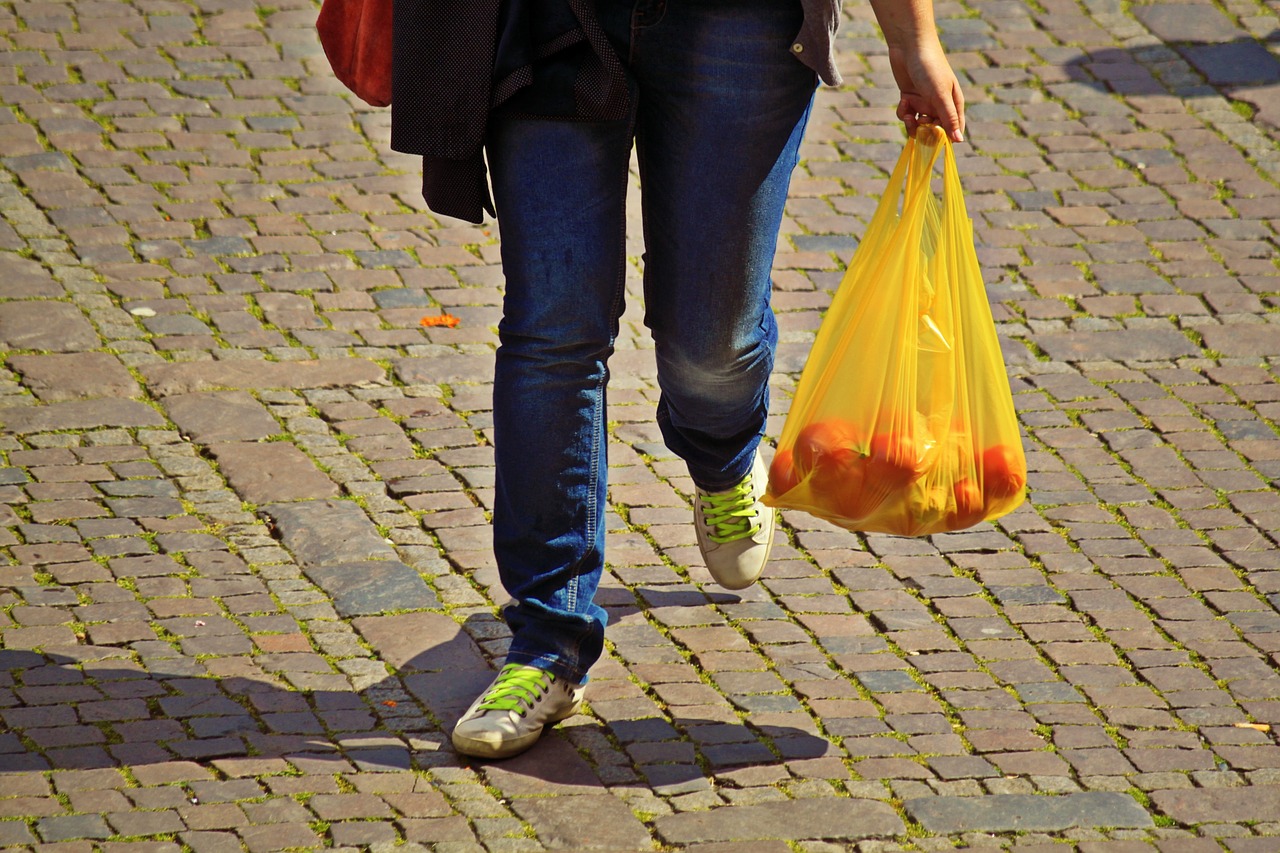
When was the first time you realised you’d made an impact?
We felt our efforts were being recognised when we were featured in The Straits Times in 2017. Through the article, people became more aware of the indiscriminate use of plastic bags and the existence of Starch Bags as a viable alternative. Environmentalists in Singapore also came to know about us and spread the word about our brand and bags.
When did you discover your passion for social entrepreneurship?
We first started Green Boulevard as a hobby. Being students at the time, we were only “part-time” social entrepreneurs. After running the company for a year, however, we both knew this is what we wanted to do full-time after graduation. Since then, it’s been a wonderful learning journey, and we are constantly thinking of ways to improve the business and create more social impact.
It must’ve been tricky juggling your studies and business at the time. How did you find time for it all?
It certainly wasn’t easy managing multiple commitments, but I’m glad Matthew and I worked well as a team to support each other. It really helped that our priorities were aligned and we pulled our weight when it came to both our business and academic work.
What advancements or changes do you hope to see for a more “sustainability”-driven Singapore?
I hope more people will embrace an eco-conscious culture and adopt sustainable practices, and that the government will encourage this sustainability movement through its policies. At the individual level, there are many things that one can do to make a difference. For example, some adopt a vegan diet as a way to consume only sustainable food sources, while others reject plastic bags and bring their own bags to supermarkets. Everyone can do their part to promote a more sustainable Singapore through small actions.

As those who embarked on social entrepreneurship as students, what advice do you have for the youth who aspire to be changemakers?
Schools are the best places to explore and nurture your passion. Surround yourself with like-minded friends or mentors, exchange ideas, listen to feedback and refine your thought processes. Draft a simple plan, execute it and learn along the way. I believe there is always room for more changemakers in the community, whether they operate through enterprises or as individuals.
What’s one way your social enterprise has changed you, and looking back now, would you have done anything differently?
I have become a much more resilient person. There were many difficulties and challenges we faced while managing Green Boulevard, but we learned how to adapt to situations and make the best of any situation. In hindsight, I wouldn't change a thing, because I believe we made the best decisions under the given circumstances and knowledge at the time. We certainly wouldn’t be where we are today if we’d done anything differently.
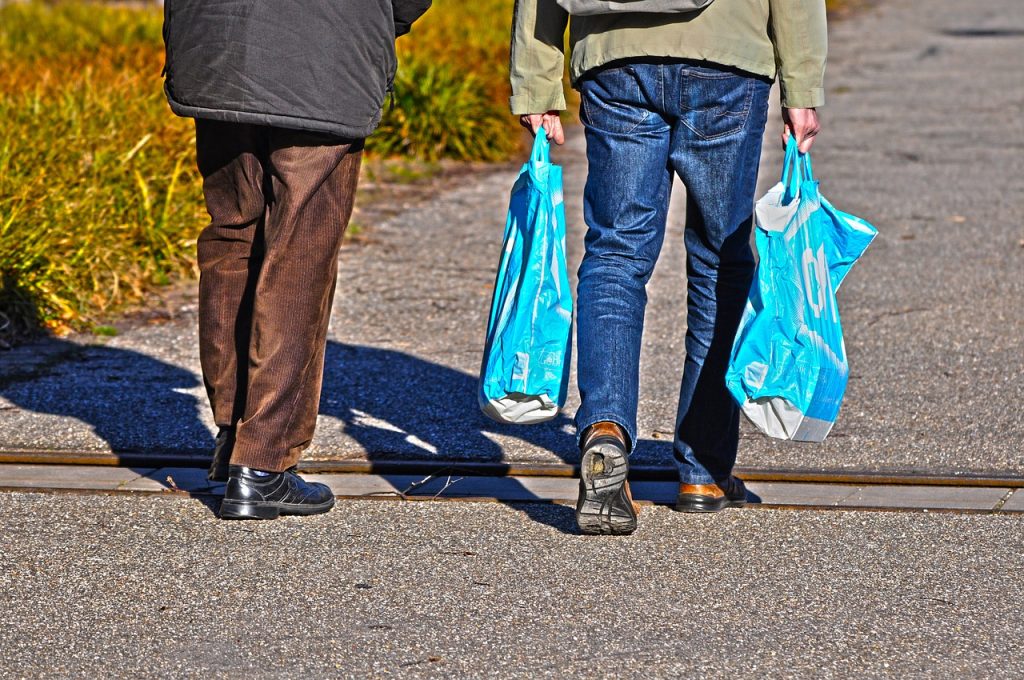
Lastly, what's your personal motto?
Do the best that you can in everything that you do.
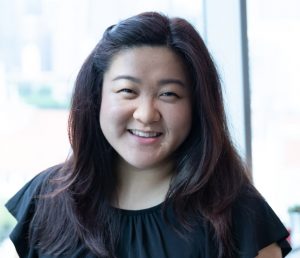 |
Esther Yeung is a 2018 Summer Associate (Editorial) at the Lien Centre for Social Innovation. Originating from Wisconsin, USA, she is a third-year undergraduate at the University of Pennsylvania, where she majors in Political Science with a concentration in International Relations and double minors in Law and Society and Asian American Studies. Esther is also an associate editor in the Penn Undergraduate Law Journal, and is a Senior Peer Advisor for academic advising within the College of Arts and Sciences. She is passionate about foreign policy and international law, and the applications of both to promote social change and the preservation of human rights for the greater global community. Alongside her academic interests, she enjoys playing tennis, listening to music and travelling with friends to find new bubble tea shops. She can be reached at esyeung@sas.upenn.edu |








Comments